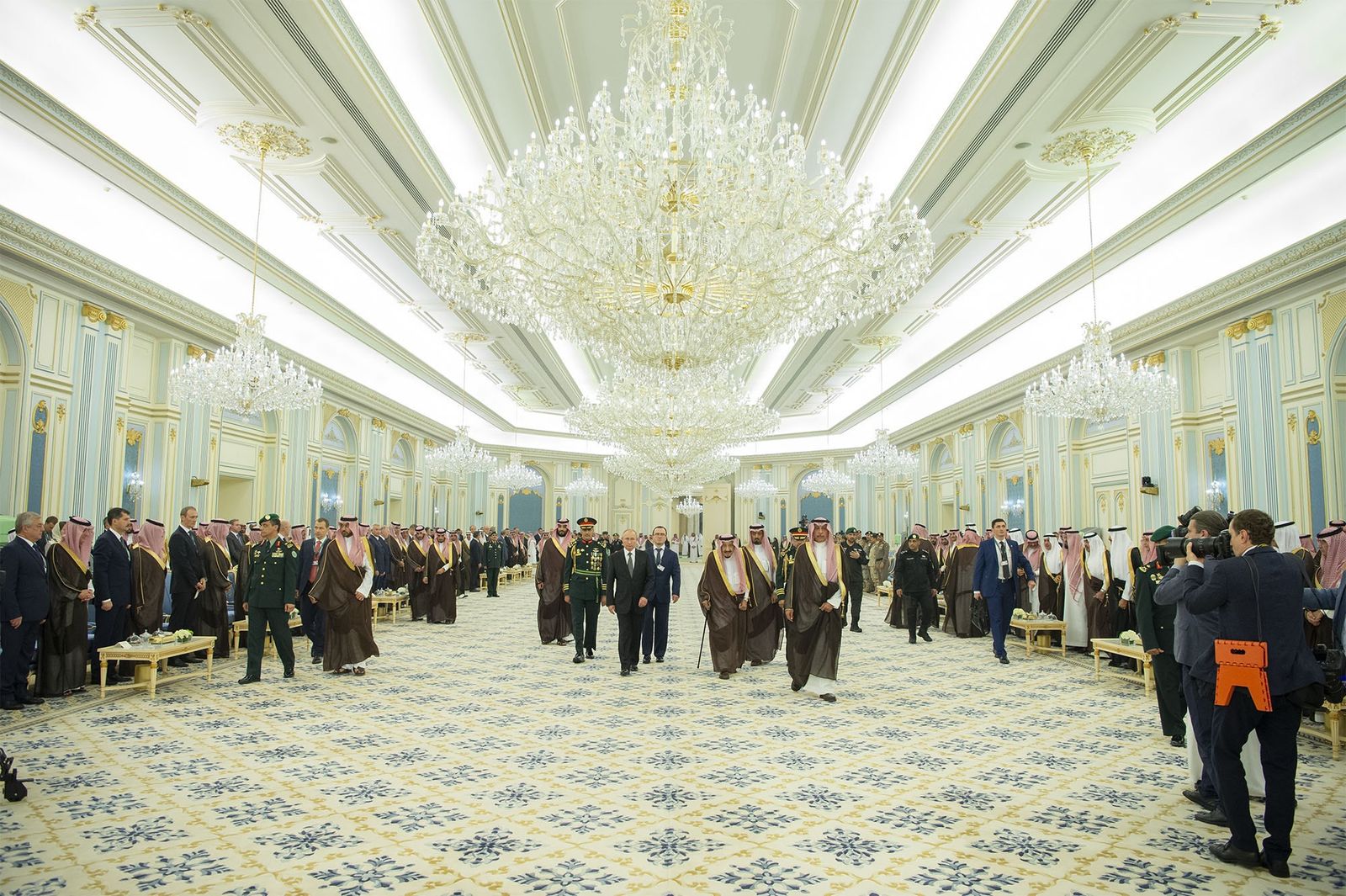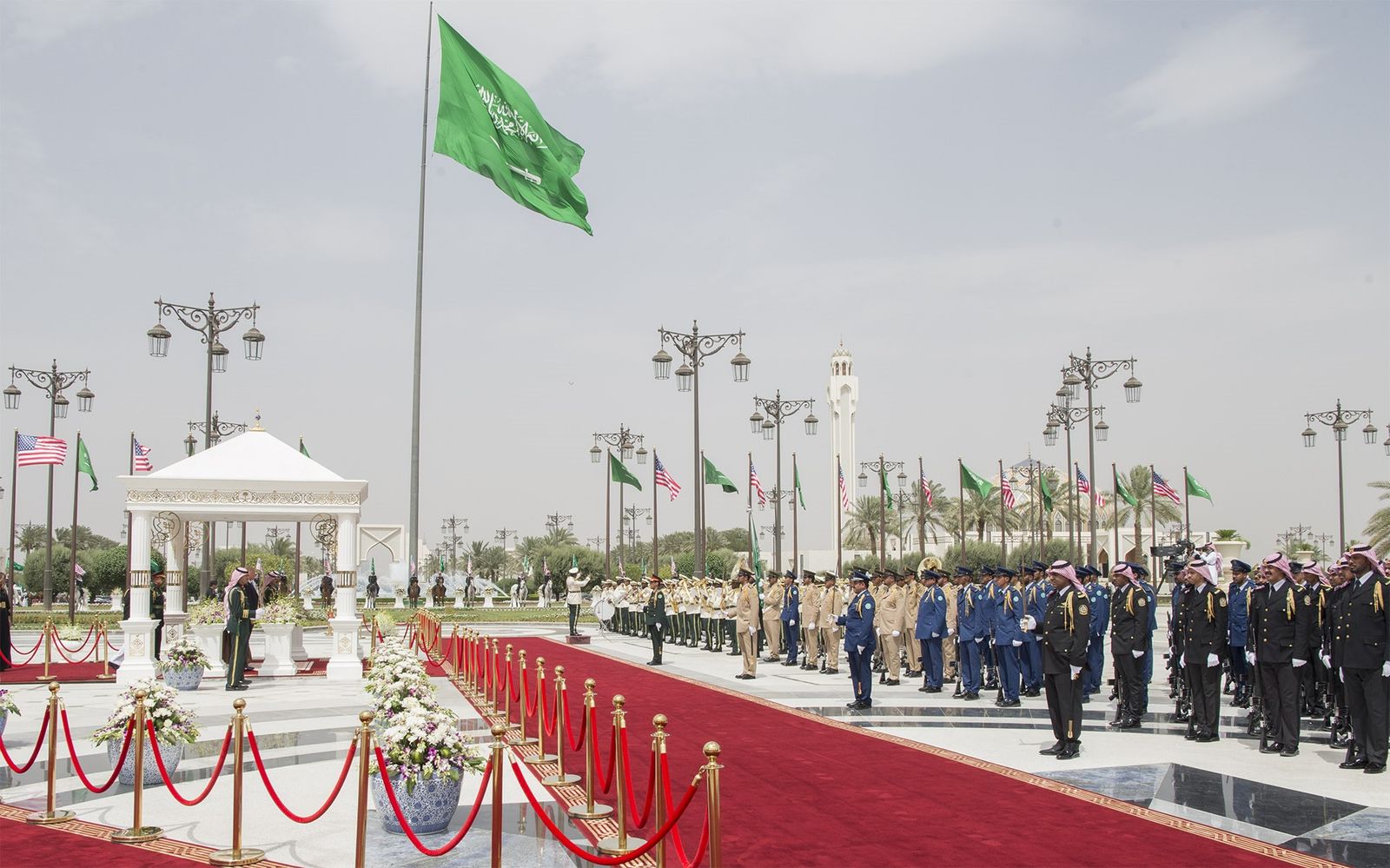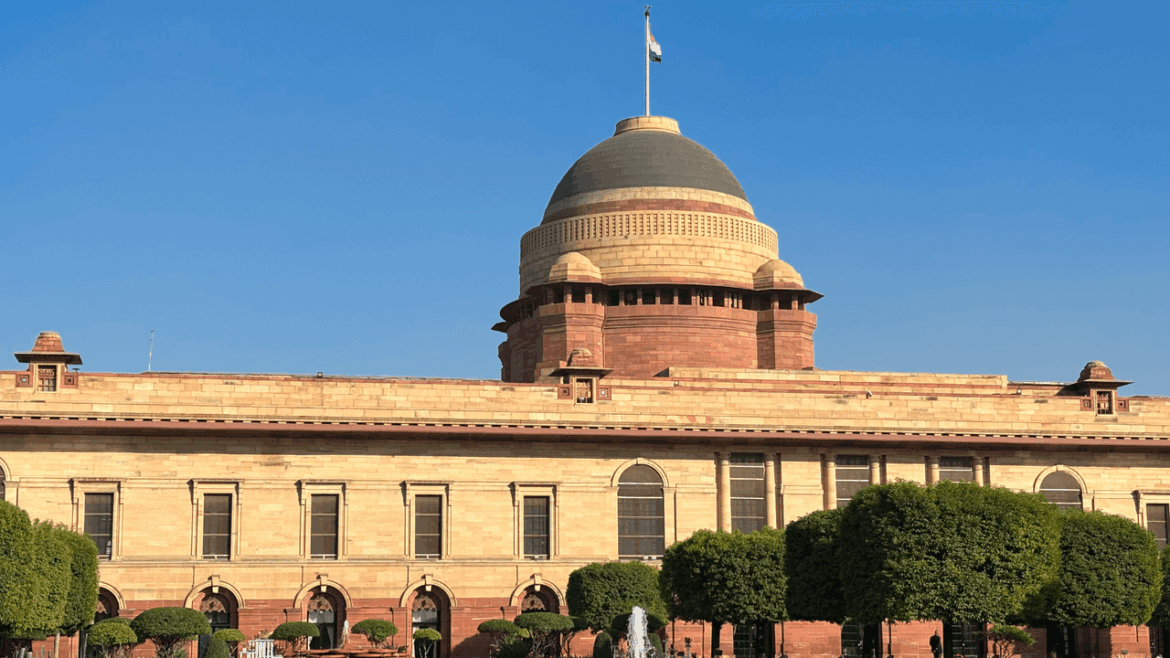Emperor Naruhito’s home reflects an extraordinary sense of restraint. Though the palace grounds sprawl across 1.15 square miles in central Tokyo, once said to be more valuable than the entire state of California, the imperial residence itself is modest. Rebuilt after WWII, the architecture embraces traditional Japanese forms: sliding paper screens, tatami floors, and a deep harmony with the surrounding gardens, composed using the principle of shakkei (borrowed scenery). Hidden from public view, the family still cultivates silk and harvests rice, upholding rituals that date back over 1,500 years.
Yamama Palace, Riyadh, Saudi Arabia
Getty Images / Anadolu

Getty Images / Anadolu
Set within a sprawling 4 million square foot compound in the capital, Yamama Palace is less a royal residence and more a fortified city. Commissioned in 1983, the palace balances the weight of authority with the elegance of tradition, its geometric façades, shrouded arcades, and tiled courtyards echoing centuries of desert architecture. Inside, advanced technology quietly coexists with cultural ritual: majlis rooms host gatherings beneath intricate ceilings, a private mosque anchors spiritual life, and gardens flourish with rare desert blooms, cultivated as a quiet defiance to the arid climate beyond the walls.
Raghadan Palace, Amman, Jordan
Supplied
Conceived in 1926 by the founding monarch of Jordan, Raghadan Palace rests atop the hills of Amman, nestled within the Hashemite Royal Court complex. Its domes and limestone walls radiate warmth, harmonising with the natural palette of the land while referencing Islamic and Ottoman architectural traditions. True to its name – raghad, meaning ‘comfortable living’ – the palace offers a retreat from political formality, its public ceremonial spaces kept distinct from the private royal quarters. In the gardens, English landscape traditions entwine with Islamic geometry, forming a quietly poetic dialogue between cultures past and present.
Château de Laeken, Brussels, Belgium
Getty Images / Jean-Marc Pierard


AloJapan.com